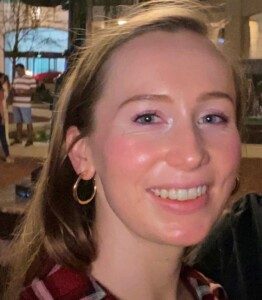Do you have autistic imposter syndrome, in that despite your clinical diagnosis you’re now wondering if you really are actually autistic?
After all, there’s no biomarker for Autism Spectrum Disorder, and clinicians are only human.
It’s very troubling – to say the least – when one minute you get the answer you’ve been seeking your entire life, the very answer that connects all the wayward dots – but then you suddenly can’t stop wondering if the diagnosis is wrong – because … maybe you don’t feel autistic enough?
• The late-diagnosed Autistics you’ve read about always have far greater struggles than yours.
• You’ve mingled with autistic adults who talk of challenges that you can’t understand.
• Your one and only meltdown occurred at age 4 when your ice cream cone fell to the ground.
• You’ve never required life skills assistance or help transitioning to living on your own.
“Am I actually autistic?”
It’s not uncommon for an adult who’s newly diagnosed with ASD to begin doubting this.
You’re hearing for the first time that there’s actually nothing wrong with you.
That’s a lot to take in, a lot of lifetime thinking to toss away in one fell swoop.
Nobody knows what percentage of those with late-diagnosed autism go through this “imposter syndrome” phase. But it’s definitely a thing.
Why You’re Doubting Your New Autism Diagnosis
“The answer to this is very personal and will differ from person to person who is working through their diagnostic journey,” says Dolly Ferraiuolo, LCSW and founder of SHARE of Florida, a mental health service provider.
“For most, finally obtaining the diagnosis feels like a dream,” continues Dolly, who was diagnosed with autism at 28.
“We lived our entire lives under the radar: How do we know for sure we are actually autistic and not just ‘quirky’ in ways?
“How could I have possibly been surviving all of these years if we are actually autistic??
“Many of us get this feeling that we are faking it all somehow, that we are not actually autistic — and that we are faking our symptoms in some way and tricking the diagnostician in some way.
“Autism itself can be compared to imposter syndrome.
“I think a lot of us who still mask (conform to expectations) do so because it has helped us throughout our lives in a variety of circumstances and has been a survival mechanism.
“Many people find that masking is effective in specific circumstances, and despite the fact that it can be draining and cause slow recovery, it is nevertheless possible for it to become our way of life.
“It may be the only way that others know us. This is one reason why it can be so challenging for people to understand that someone they have known their entire life has autism.
“People tell us we don’t ‘look autistic’ because of how we have masked our entire lives — and then we start to believe it as well.”
Ashley Gartner, 24, is a skincare blogger and master esthetician who was diagnosed with autism at 24.
She explains, “During my diagnosis process I would think that I was somehow cheating on the assessments to get answers that resembled autism.”
How to Beat Autistic Imposter Syndrome
“Am I just a quirky neurotypical?”
Quirkiness and growing up in a negative environment certainly would not explain some of your autistic features such as:
- A lot of rocking or other stimming such as toe-walking, spinning, odd hand movements and spontaneous vocalizations that you know with 100% certainty would be considered weird AF to neurotypicals.
- Relentless rehearsing of anticipated interactions with people.
- Hyperfixations on topics of interest that most people find boring.
- Difficulty with or dislike of small-talk.
- Having always felt that you were a different species of human.
- Strange sensory issues.
“Surviving All These Years”
Read the requirements for an Autism Spectrum diagnosis in the DSM-5.
Nowhere is a criterion of being unable to live on one’s own, needing assistance with adulting or having needed assistance in childhood navigating through a school day.
Though many autistic people will always need support (sometimes very substantial) in day-to-day existence, there are others on this SPECTRUM who not only have always been totally self-sufficient, but are also in carer roles for family members.
Like some Autistics diagnosed in later adulthood, I have “survived” quite well without help, having moved out on my own at 22.
And maybe my autism – and possibly yours – has been a survival advantage.
For example, I’ve never been afraid to live alone or suffered from loneliness while having zero friends.
It takes moving a mountain to hurt my feelings. I don’t worry what people think of me – a malady that’s very prevalent among NTs.
It’s vital to note that some autistic people do worry about not fitting in and being perceived as an outlier, but once they learn to unmask, they dance to their own beat!
Another survival advantage is that I’ve always been extremely resistant to peer pressure.
I also take on crisis situations through the scope of logic and “how do we fix this” rather than panic and “let’s get emotional.”
For the most part, I have a tactical, not an emotive, approach to challenging situations. I’m a Vulcan at heart!
“Faking Autism”
An autism assessment is designed to account for a client’s pre-existing knowledge of how the assessments work.
A client who’s in full masking mode during an evaluation can still be set up by the examiner to reveal traits that point towards an autistic mind.
For instance, the examiner may randomly toss in sarcasm to see how the client responds or have the client conduct tasks that bring out literal thinking.
If during your evaluation you force eye contact and much-practiced facial expressions and smiles, and speak in small-talkese based on a rehearsed script, you still, for the most part, won’t know when a savvy examiner is setting you up.
Masking and Passing
I read of a woman who doubted her autism diagnosis because she’d always been so convincing at passing for an NT.
But an NT won’t spend tons of time studying and analyzing how people act in social situations in the name of blending in and not being thought of as strange.
Though NTs will sometimes put on a fake act, such as during a job interview or on a first date, they just won’t feel a need to take notes, practice, rehearse, stand before mirrors to inspect facial expressions, etc., for common social situations or workplace interactions – and especially then feel taxed or drained afterwards.
The reverse may also occur: developing an autistic imposter syndrome because you’ve never heavily masked at all.
I was never much of a masker. I rarely observed and then copied the behavior of other girls to be more like them. Does this make me “less autistic?”
You be the judge: In ninth grade when I was 13, three girls passed around a survey to other ninth graders at the Catholic all-girls school in which there were about 270 students in the ninth grade.
I never saw the survey, but the question and results made it back to me. The question was, “Who’s the weirdest girl?”
My name was at the top of the list of like three girls total.
Sounds to me like my inability to pass was ANYTHING but an indicator of “not being autistic enough.”
An incident such as this could discourage any ninth-grader from trying to make friends.
Years later after the adult autism diagnosis they may think, “But maybe I struggled socially because when I was 13, I gave up on it and never developed social skills because of that damn survey.”
However, why was I named the weirdest IN THE FIRST PLACE? I must have already been exhibiting some kind of atypical behavior that all those neurotypical girls had picked up on.
Where had that behavior come from? What was it, specifically?
To this day, I can’t identify it. I definitely made eye contact, didn’t have peculiar mannerisms, never got over-emotional, never rocked in class, and I talked to other girls. I guess I’ll never know.
And that actually strengthens the case for my Autism Spectrum Disorder diagnosis!
Plus, prior to high school, I had felt different; it didn’t begin the day I learned the survey results. I’ve felt awkward or somehow different since grade school.
Have you? This is a strong case for an ASD diagnosis.
If after reading this you’re still feeling some autistic imposter syndrome, remind yourself of your autism features that cannot be explained away by some normal variation of quirkiness in NTs.
Neurodivergent signs include frequent stimming (especially “socially unacceptable” forms), hyperfixations and especially obsessions with unusual topics, a savage habit of ruminating on past negative interactions with people, not being able to tell if people really like you or not knowing how to make friends or keep them, discomfort with breaking a routine, preference for avoiding eye contact, overthinking eye contact while sustaining it or finding it challenging to hold eye contact while talking.
 Dolly Ferraiuolo, an autistic self-advocate, connected with other strong clinicians to launch SHARE of Florida in 2019, an evidence-based, skill-based and solution-focused approach to therapy and psychiatry, providing mental health services to all individuals regardless of background. Specialties include diagnostic evaluations, autism, ADHD, anxiety, eating disorders, trauma, fitness and nutrition.
Dolly Ferraiuolo, an autistic self-advocate, connected with other strong clinicians to launch SHARE of Florida in 2019, an evidence-based, skill-based and solution-focused approach to therapy and psychiatry, providing mental health services to all individuals regardless of background. Specialties include diagnostic evaluations, autism, ADHD, anxiety, eating disorders, trauma, fitness and nutrition.
 Ashley Gartner runs Ash Esthetics, a holistic skincare site where she shares her expertise in skincare, a passion she’s had since age 12. “I was determined to learn everything there is to know about skin,” says Ashley, who’s licensed as a master esthetician. “My main goal is to just help people because I know how hard it is to have healthy skin.”
Ashley Gartner runs Ash Esthetics, a holistic skincare site where she shares her expertise in skincare, a passion she’s had since age 12. “I was determined to learn everything there is to know about skin,” says Ashley, who’s licensed as a master esthetician. “My main goal is to just help people because I know how hard it is to have healthy skin.”
 Lorra Garrick has been covering medical and fitness topics for many years, having written thousands of articles for print magazines and websites, including as a ghostwriter. She’s also a former ACE-certified personal trainer. In 2022 she received a diagnosis of Level 1 Autism Spectrum Disorder.
Lorra Garrick has been covering medical and fitness topics for many years, having written thousands of articles for print magazines and websites, including as a ghostwriter. She’s also a former ACE-certified personal trainer. In 2022 she received a diagnosis of Level 1 Autism Spectrum Disorder.
.










































